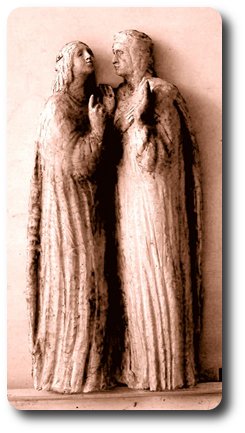Saturday 30 October, 10.30am until 12.00pm, Henry Moore Gallery
 From the ‘pro-life’ movement to abortion rights campaigners, from animal rights activists to those lobbying for legal euthanasia, everybody shares a view that life is sacred. But there are big disagreements as to what kind of life is sacred, and when it begins – and ceases - to matter. What separates human life from other life forms – or is there less of a distinction than we might think? In terms of human beings, what makes life distinct from biological existence? This argument has had particular potency in relation to the beginning of life. Debates rage about abortion, from whether it is right to abort an embryo at all, to the stage of fetal development – 12 weeks, 20 weeks, 24 weeks, full term – at which abortion becomes unacceptable. What is it, if anything, that gives the life of an adult woman more value than that of an embryo – and what gives the life of a newborn baby more value than that of a near-term foetus?
From the ‘pro-life’ movement to abortion rights campaigners, from animal rights activists to those lobbying for legal euthanasia, everybody shares a view that life is sacred. But there are big disagreements as to what kind of life is sacred, and when it begins – and ceases - to matter. What separates human life from other life forms – or is there less of a distinction than we might think? In terms of human beings, what makes life distinct from biological existence? This argument has had particular potency in relation to the beginning of life. Debates rage about abortion, from whether it is right to abort an embryo at all, to the stage of fetal development – 12 weeks, 20 weeks, 24 weeks, full term – at which abortion becomes unacceptable. What is it, if anything, that gives the life of an adult woman more value than that of an embryo – and what gives the life of a newborn baby more value than that of a near-term foetus?
In recent years, end-of-life issues have also raised some pressing and sensitive questions. How can we balance a sensitive appreciation of human suffering, from chronic illness and disability, against the view that life is sacred and should not be prematurely discarded? If people lack any clear quality of life, is the continuation of life in fact a cruelty? Central to notions of personhood is the question of autonomy – people’s ability to decide what is best for them, in the context of their own bodies. Some argue that legal and cultural proscriptions against euthanasia undermine this autonomy, and treat individuals less as people through forcing them to continue with a life not worth living. On the other hand, it is argued that accepting the notion that death can be actively sought risks endorsing the view that life is expendable; that legal euthanasia is a slippery slope to greater evils. Some see this debate in broader terms of body and the soul. The loss of faith in something bigger than ourselves, it is argued, means that we fetishise our corporeal existence and try in vain to determine the manner of our demise. On the other hand, it is argued that recognising the failure of our bodies to live out a full life, and taking control of the manner and timing of our death, is a positive expression of the human spirit. How do we understand the meaning of the soul in the modern world?
Listen to session audio:
 | Dr Stuart Derbyshire reader in psychology, University of Birmingham; associate editor, Psychosomatic Medicine and Pain |
 | John Harris Lord Alliance Professor of Bioethics, University of Manchester; joint editor-in-chief The Journal of Medical Ethics; member, Human Genetics Commission |
| Chair: | |

|
Ann Furedi
chief executive, British Pregnancy Advisory Service; author, The Moral Case for Abortion |
Papers from the bpas conference, London, 25 - 26 June 2008
Various, Abortion Review, August 2010It depends who you ask. Some groups say life begins as soon as a sperm fuses with an egg. Others believe the boundary is more blurred.
Ian Sample, Guardian, 10 February 2005 Stop stemming the research
Stop stemming the research
For stem cell research to fulfil its potential, US scientists need to develop more backbone.
Stewart Derbyshire, spiked, 30 November 2001